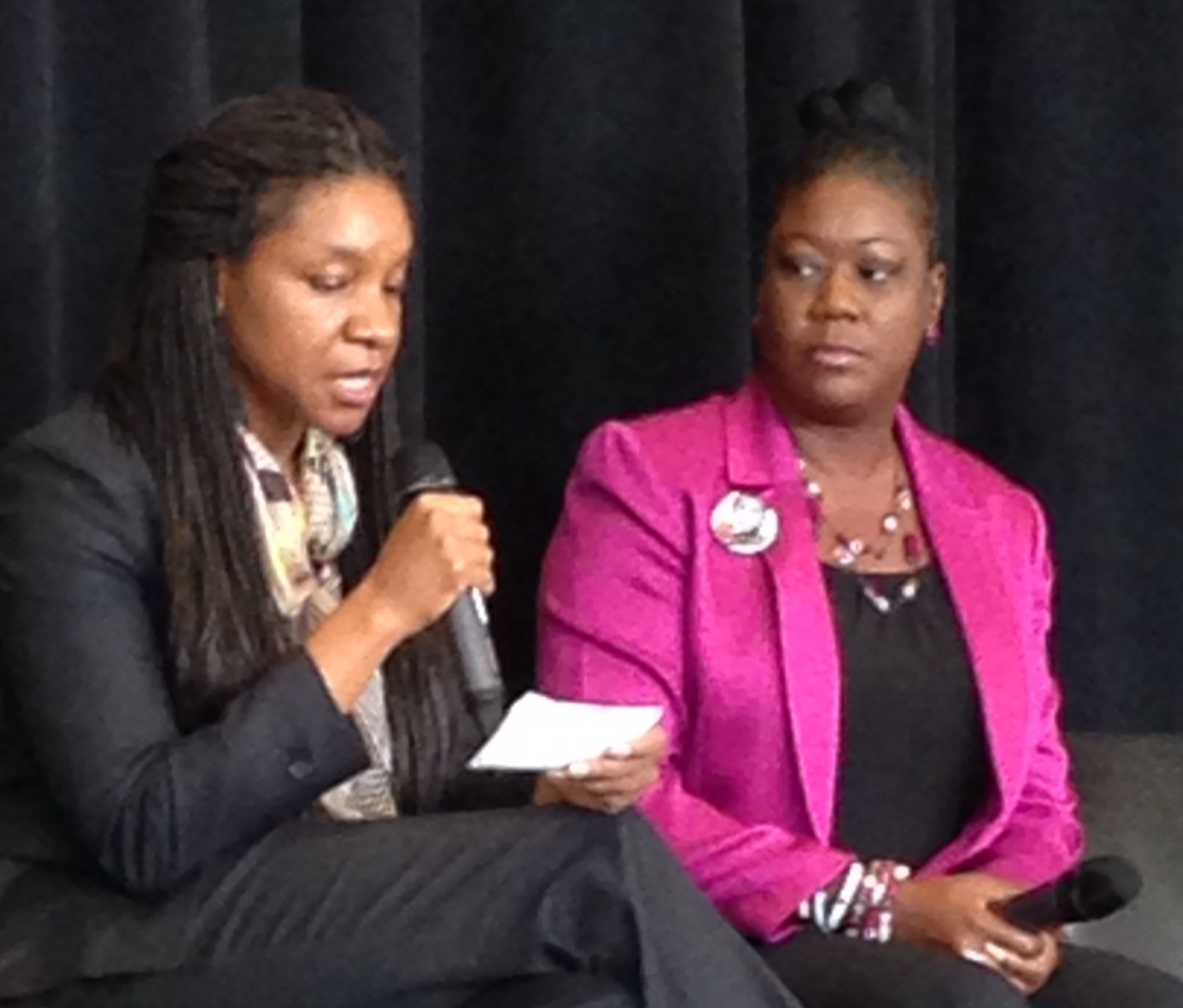
(KCPW News) Last summer, the trial in the shooting of 17-year-old Trayvon Martin ended with little resolution for his mother, Sybrina Fulton. The man accused of murdering Martin was acquitted of all charges, and Fulton was left to wonder if she would ever get the justice she felt her son deserved.
But instead of dwelling on what could have been, Fulton says she decided to honor her son by making her community—and the country—a better place to live.
“I have no plans of leaving the United States. To me, it’s the best country in the world, the only one that I know,” she said. “Another thing is, I am from Florida. I was born and raised in Florida. And I refuse to leave Florida because Florida has an issue. Instead, I want to change Florida to be a better place.”
Fulton spoke at the University of Utah on Thursday, raising awareness of racial divides that exist in Utah and all over the country. Her appearance was part of a series of discussions and events hosted by the University’s Equity and Diversity Office, entitled “Beneath The Hoodie: A Look at Racial Profiling in America.”
Fulton says that, while she may have lost her son, what drives her now is the thought of getting the chance to save other children through her work. The struggle, she says, is starting the discussion.
“The conversations that we have, yes, they’re uncomfortable. But we need to discuss them. We need to talk about them. Because don’t think for one second that racial profiling does not happen. Don’t think even in your community, here, in Salt Lake City, that it does not happen. Because it does. It’s an awful thing, but it does (happen). Racism is still alive. Racial profiling is still alive. Injustice is still alive,” Fulton said.
During a question-and-answer session, many in the audience commented that they knew of or even personally experienced racial profiling. Student Nura Samatar says she has been treated differently for her appearance.
“Not only am I black, but I’m a Muslim female. So of course I’ve experienced seeing it through, like, traveling. Driving one time I got pulled over for no reason and the cop thought somebody else hit me,” Samatar said.
Students Eno Etokidem and Peter Ahorukomeye say they have been following the Trayvon Martin case since early on. Eno says she has experienced some stereotyping around campus due to her race.
“I’ve been asked, like, ‘What was your ACT score? How did you get into the school?'” Etokidem said. “They won’t come out and say, ‘Oh, did you get in because you’re black?’, but they’ll ask me, ‘Oh yeah, did you get more scholarships because you’re black?'”
“Yeah, indirect things like that,” Ahorukomeye agreed. “I can bare witness. She’s smarter than some people that are asking these questions.”
Fulton’s appearance kicks off a number of events at the University of Utah in observance of Martin Luther King Day this weekend. For more information, visit the school’s website.
How do you feel about this topic?
Is there anything else you think we should know? We'd like to hear your thoughts. Send us your feedback using the form below.




